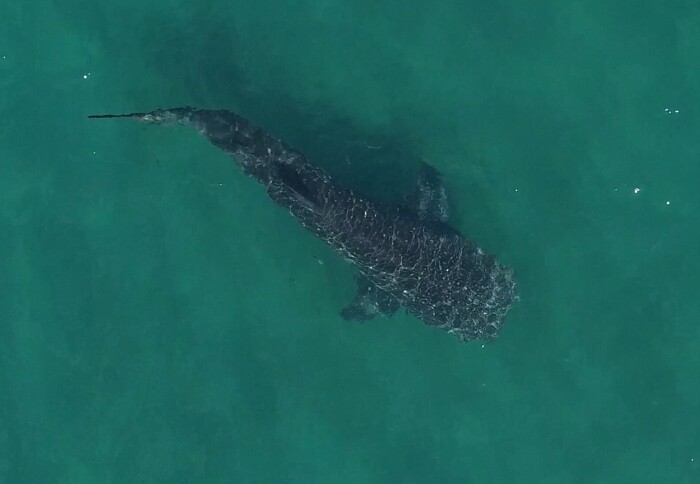Swimming with sharks and student support: News from the College

Here's a batch of fresh news and announcements from across Imperial.
From scared sharks to STEM awards, here is some quick-read news from across the College.
Tourism troubles

Ecotourism activities may cause disturbed behaviour and foraging success in whale sharks, according to a new study.
In the Bay of La Paz, Mexico, researchers from Imperial compared shark behaviour when alone, and with a human swimming nearby, to understand how 'swim with sharks' activities influence behaviour.
Sharks showed disturbed behaviour patterns similar to predatory escape behaviours, including zig zag movements, with the human swimmer nearby. These sharks typically reside in the Bay of La Paz to forage, and the avoidance behaviours could increase energy output and disturb foraging while displacing sharks from an area known for high foraging success.
Joel Gayford from Imperial College London’s Shark Measurements Group, and first author of the study, said: “Shark populations globally are facing catastrophic declines. Ecotourism has been posited as a potential solution to many of the issues facing shark conservation – but we would like to see tighter regulations regarding shark-human interactions until their potential ecological impacts are better understood.”
ERC grant to help hydrogen's future

Dr Emilio Martinez-Paneda, a visiting reader in the Department of Civil and Environmental Engineering, has won one of 400 prestigious European Research Council (ERC) Starting Grants.
Dr Martinez-Paneda uses a combination of experiments, theoretical analysis and computer simulations to develop mechanistic models that can reliably capture and predict how materials can wear, fracture and become deformed.
The grant of 1.5 million Euros is for ResistHfracture - a project that aims to help develop a new generation of materials with intrinsic resistance to a problem known as hydrogen embrittlement.
Hydrogen plays a key role in global net-zero plans, it can "embrittle" metallic materials, dramatically reducing their resilience, strength and resistance to cracking. This is one of the biggest impediments to introducing a hydrogen-based fuel economy to help the world transition away from fossil fuels.
Dr Martinez-Paneda said: "I am delighted to be awarded an ERC grant. The ERC programme is unique in that it allows researchers to explore radical fundamental ideas that can carry a high risk but can also provide innovative solutions to existing challenges. I am very grateful to my mentors and collaborators at Imperial and elsewhere, as well as the members of my research group for their support and encouragement."
Increasing representation in STEM

Imperial College London has received an award for Outstanding Contribution to Postgraduate Support and Wellbeing from FindAMasters, a global database of Masters degree programmes and related opportunities. The award recognises projects that have championed the postgraduate community through support, wellbeing, inclusivity and widening participation initiatives.
Imperial received the award for its Black Graduate Careers Conference, Imperial BE initiative to support Black entrepreneurship, and Revolutions in Engineering and Biomedicine Summer programmes, led by Professor Sara Rankin, National Heart and Lung Institute, Dr Wayne Mitchell, Department of Immunology and Inflammation, and Dr Sunday Popo-Ola, Department of Civil and Environmental Engineering. These projects were funded by Research England and were designed to increase the progression of Black students to postgraduate studies, and to increase the sense of belonging of Black postgraduate students at Imperial.
Professor Sara Rankin said: “We are very proud to receive this recognition and would like to thank all those who have been involved in the development, organisation and delivery of these projects. The funding from Research England via Imperial has made these activities possible and shows the commitment of both organisations to increasing the representation of students of Black Heritage in STEM at a postgraduate level.”
 Want to be kept up to date on news at Imperial? Sign up for our free quick-read daily e-newsletter, Imperial Today.
Want to be kept up to date on news at Imperial? Sign up for our free quick-read daily e-newsletter, Imperial Today.
Article text (excluding photos or graphics) © Imperial College London.
Photos and graphics subject to third party copyright used with permission or © Imperial College London.
Reporter
Sara West
Communications Division
Bryony Ravate
Communications Division